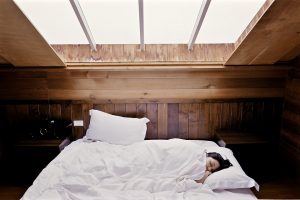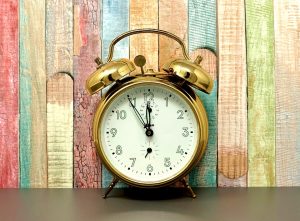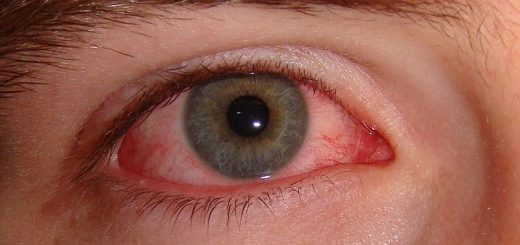How To Maintain Good Sleep Hygiene Despite Being Busy
How To Maintain Good Sleep Hygiene Despite Being Busy
By now you must have figured out that being an adult is synonymous with being busy. One of the things our busy life steals is sleep. Time is precious and it seems like sleep is the most unproductive thing we could be doing with our time. But is sleep really unproductive? Is it truly a waste of our precious time? In this article, find out why our busyness shouldn’t affect our sleep and how to sleep well and have good sleep hygiene despite a busy schedule.
Is Sleep Really Important?
Sleep is one of the most important activities you would ever do. That’s why 30 percent of your life is spent doing it. Sleep is when the brain and body rest. It is during this time that your brain shifts the information acquired during the day into long-term memory. It is also the time where the body repairs itself.
To answer your question on the importance of sleep, let’s look at some of the benefits of sleep.
- It improves your productivity
- It sharpens your memory
- It increases your capacity for learning
- It boosts your energy
- It reduces stress levels
- It improves reaction time thereby decreasing accidents
- It decreases your risk of depression
- It improves your immune system

There are no downsides to getting enough sleep.
These are only a few of the benefits of sleep and it reflects why reducing your sleep time to accommodate other things in your schedule is not a good idea.
Now let’s examine the reverse – sleeplessness. Poor sleep gives the opposite of what good sleep gives you. You have decreased productivity, loss of memory and attention, increased stress, increased risk for depression and low immunity. All of these things will ultimately affect your busy life.
It is counter-productive to trade sleep for more activities because, in the end, your body may not be able to take the pressure. This may cause you to eventually have a physical breakdown which you may not recover from.
How Do I Balance My Busy Schedule And Sleep?
The truth of the matter is that it may be difficult to perfectly balance all your life activities. However, we don’t have to hit perfection as long as we can live optimal lives. Living an optimal life means everything is in its place. Sleep, work, family, friends, hobbies and so on all have their place in your life. Sometimes an aspect needs more time than normal so you reduce the time spent in another aspect. However, as much as possible don’t consistently take time from your sleep because that may eventually harm you.
The first step to balancing your schedule is to understand that sleep is important to your overall health and happiness.
The second step is to decide that you would get adequate sleep no matter what your schedule is like.
The third step is to practice good sleep hygiene.

Not everyone needs the same amount of sleep each night, but everyone can benefit from bettering their sleep hygiene.
What Is Sleep Hygiene And How Do I Do It?
Simply put Sleep hygiene is what you do to make sure you sleep well. It is especially important with a busy schedule so you are alert and productive for your daily activities. Practicing sleep hygiene is recommended so that you can get the full benefits of sleep as listed earlier. Below are some of the practices of good sleep hygiene.
Adequate Sleep
The recommended sleep length for adults is 7 – 8 hours but it can be stretched to 6 – 9 hours. You might be wondering how you are going to carve out 7 hours in your day for sleep. Remember step 1 in balancing your schedule and sleep? Understand that adequate sleep is important for your overall health and happiness. You have to take the time out! You have to get enough sleep or you wouldn’t be doing ANYTHING else. Here are some reasons why you can’t sleep and the recommended strategies to help you sleep better. If you are afraid that you have insomnia, you can also try reading the article 13 Home Remedies for Insomnia.
Avoid Stimulants
It’s common practice with busy adults to take stimulants like alcohol, caffeine, and cigarettes to keep awake. It might be acceptable to take some coffee in the morning, but avoid these substances close to bedtime. The stimulants tend to disrupt your sleep cycle such that your sleep is not refreshing. Avoiding them will allow you to move through the stages of sleep seamlessly.

It’s generally best to stop drinking caffeine after lunch time.
Avoid Heavy Meals
Heavy meals just before bedtime give your body work to do when it’s supposed to be resting. This keeps you from having a restful sleep.
Exercise
In relation to sleep, exercise can be good or bad. The recommendation is that you exercise in the daytime because it helps nighttime sleep. If you exercise close to bedtime your body is too revved up to go to sleep when it should, which means that you won’t sleep well at night. Basically, daytime exercise is good, nighttime exercise is bad.
Bedtime Routine
Having a bedtime routine helps your body recognize that sleep time is drawing near. You could have a hot shower, drink some hot tea and then do some light reading (not files from work!). It also helps to go to bed around the same time daily. It is also good to use a great mattress, and it doesn’t have to cost much- you can get great beds without breaking stressing your finances. This will help you avoid shoulder pain when sleeping on your side.
As for weekends, ensure you maintain your weekday routines. It’s tempting to have a sleep deficit throughout your work week and then sleep in on the weekends. Don’t do this! Optimal sleep is done daily, not weekly. It is still harmful to your body if you do that. Your body adjusts faster when there is a specific routine that it goes through every single day.
Avoid Artificial Light
The sources of artificial light we have are our gadgets – phones, laptops, computers, T.V.s, tablets. These things stimulate you, keeping you awake. It is therefore recommended that they are put away about an hour before your intended bedtime.

If you need to watch TV to fall asleep, put a timer on the TV so it shuts off while you are asleep. This will help you to avoid being woken up by a show in the night.
Limit Daytime Naps
Taking long naps in the daytime would reduce the amount of sleep you need at night. Our body needs a certain amount of sleep per day, so it deducts your daytime sleep from its daily requirement. This may make getting to sleep at night more difficult, it may even fragment your sleep and alter your sleep cycle. It’s best to limit naps to 20 – 30 minutes and complete your sleep at night.
Comfortable Sleep Environment
Studies have shown that it’s best to sleep in a quiet, dimly lit room with cool temperatures. If you have to turn on the lights, use a sleep mask and sleep aids like a weighted blanket. Make your room a paradise for sleep, so that when you enter your bedroom at bedtime your body starts preparing for a restful sleep.
Practicing Sleep hygiene is the way to go to get optimal sleep. As a busy person, it’s important to realize that good sleep would make you more productive, happy and healthy. So make the decision to have good sleep hygiene and then commit to it – you can’t go wrong!
Author Bio
Dr. Omiete Charles-Davies has a degree in medicine and surgery and loves to share health information. In his spare time, he loves to travel and experience other cultures.







